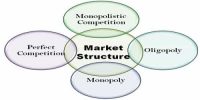Non-financial incentives are the types of rewards that are not a part of an employee’s pay. All the needs of individuals are not satisfied by money alone. Psychological, social and emotional factors also play important role in providing motivation. Effective non-financial incentives for employees reach out and touch the emotions to make the employee feel welcomed, appreciated, and valued.
Though promotion involves payment of extra money, non-monetary aspects over-ride monetary aspects.
Some of the important non-financial incentives are discussed below:
(i) Status: In the organizational context, status means ranking of positions in the organization. The authority, responsibility, rewards, recognition, perquisites and prestige of job indicate the status given to a person holding a managerial position.
(ii) Organizational Climate: Organizational climate indicates the characteristics which describe an organization and distinguish one organization from the other. These characteristics influence the behaviour of individuals in the organization.
(iii) Career Advancement Opportunity: Every individual wants to grow to the higher level in the organization. Managers should provide opportunity to employees to improve their skills and be promoted to the higher level jobs.
(iv) Job Enrichment: Job enrichment is concerned with designing jobs that include greater variety of work content, require higher level of knowledge and skill; give workers more autonomy and responsibility; and provide the opportunity for personal growth and a meaningful work experience.
(v) Job security: Employees want their job to be secure. They want certain stability about future income and work so that they do not feel worried on these aspects and work with greater zeal.
(vi) Employee Empowerment: Empowerment means giving more autonomy and powers to subordinates. Empowerment makes people feel that their jobs are important. This feeling contributes positively to the use of skills and talents in the job performance.
















